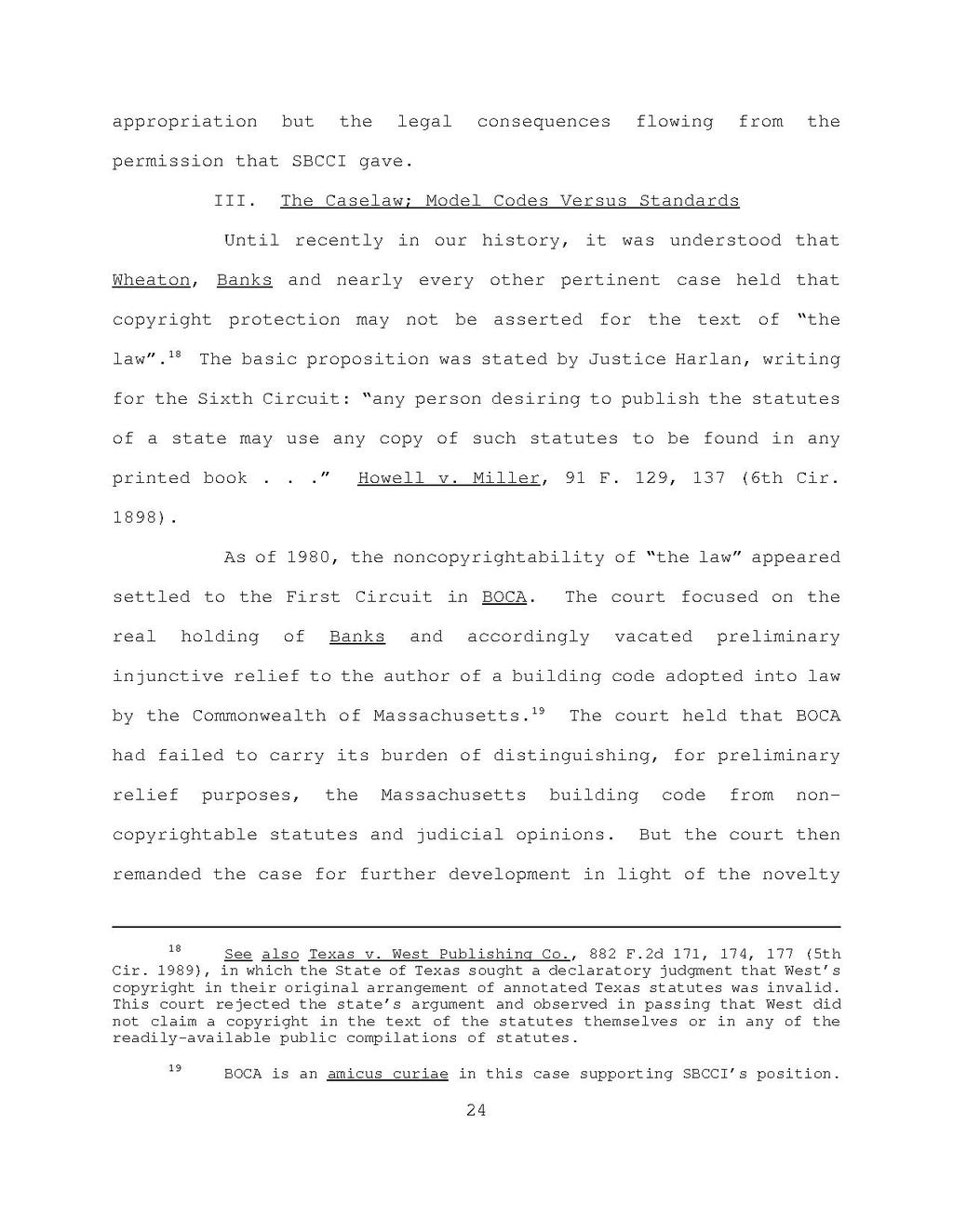appropriation but the legal consequences flowing from the permission that SBCCI gave.
III. The Caselaw; Model Codes Versus Standards
Until recently in our history, it was understood that Wheaton, Banks and nearly every other pertinent case held that copyright protection may not be asserted for the text of "the law".[1] The basic proposition was stated by Justice Harlan, writing for the Sixth Circuit: "any person desiring to publish the statutes of a state may use any copy of such statutes to be found in any printed book . . ." Howell v. Miller, 91 F. 129, 137 (6th Cir. 1898).
As of 1980, the noncopyrightability of "the law" appeared settled to the First Circuit in BOCA. The court focused on the real holding of Banks and accordingly vacated preliminary injunctive relief to the author of a building code adopted into law by the Commonwealth of Massachusetts.[2] The court held that BOCA had failed to carry its burden of distinguishing, for preliminary relief purposes, the Massachusetts building code from non-copyrightable statutes and judicial opinions. But the court then remanded the case for further development in light of the novelty
- ↑ See also Texas v. West Publishing Co., 882 F.2d 171, 174, 177 (5th Cir. 1989), in which the State of Texas sought a declaratory judgment that West's copyright in their original arrangement of annotated Texas statutes was invalid. This court rejected the state's argument and observed in passing that West did not claim a copyright in the text of the statutes themselves or in any of the readily-available public compilations of statutes.
- ↑ BOCA is an amicus curiae in this case supporting SBCCI's position.
24
